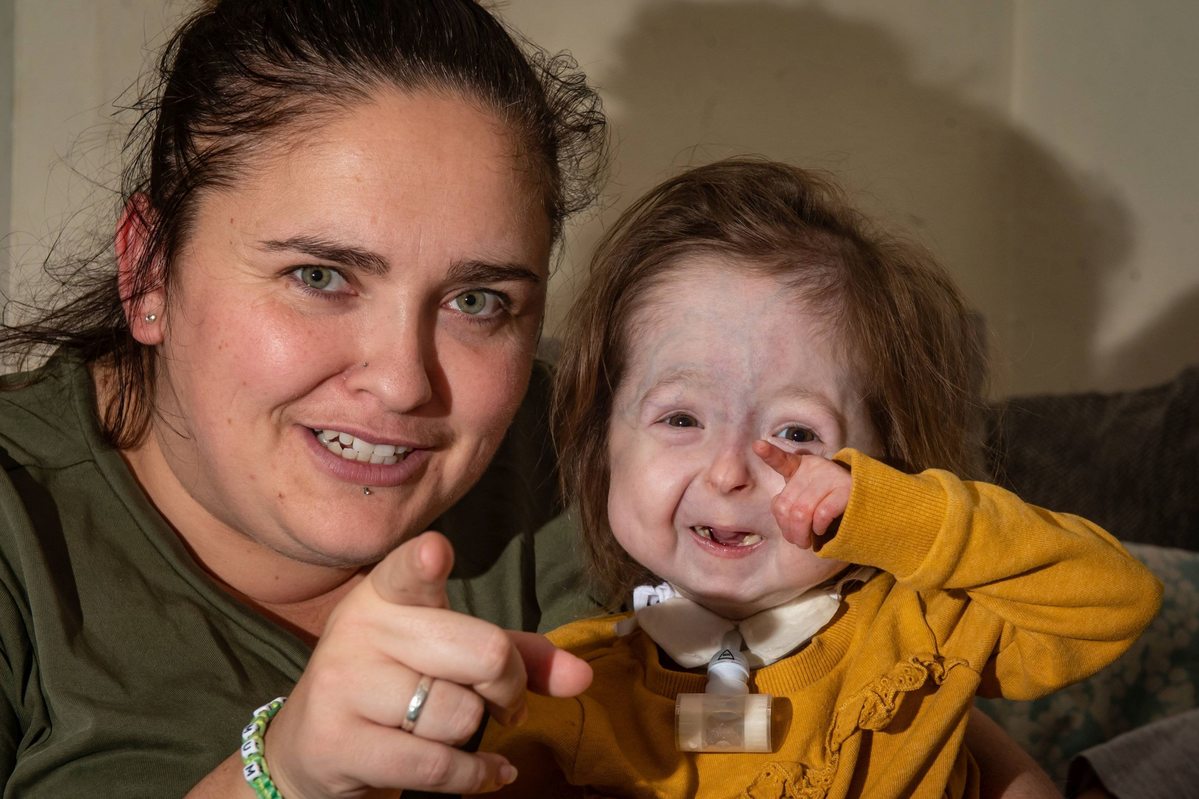
Two-year-old British girl, Isla Kilpatrick-Screaton was born with an extremely rare disease called “Benjamin Button Disease”.
“Benjamin Button Disease” or mandibuloacral dysplasia, is a disease which causes her cells to age far too quickly.
According to reports from the National Organization for rare disorders, only 40 cases of the genetic conditions have ever been reported. The DNA tests of Isla reveal that she carries a specific mutation that has never before been seen in any other suffer.
With Isla’s critical conditions, she is battling a heart disorders and breathing difficulties and faces an uncertain future.
“Isla was born on 2nd February 2017, early labor at 36 weeks,” said Isla’s mother, Stacey. Stacey said the delivery was dramatic as Isla was nearly suffocating. She was in an induced coma for the first five days of her life, with her parents unable to hold her.
A month after she was born, little Isla was deemed well enough to go home. But everything changed on the sixth day at home as she started choking, spluttering and turning blue.
After 3 months of struggling, doctors finally discovered that this happened every time she got upset. And following numerous tests, Isla was eventually diagnosed with mandibuloacra dysplasia in October 2017.
More than two years on, Isla’s parents still feel clueless about their daughter’s disease. The 2-year-old, who is fed via a tube, weigh just 7 kg. Her parents also say that she can barely speak and largely communicates via sign language.
The symptoms of this disease are narrow airways; pale, thick skin and a small jaw which can stop her breathing at any given time.



Leave a comment
0 Comments